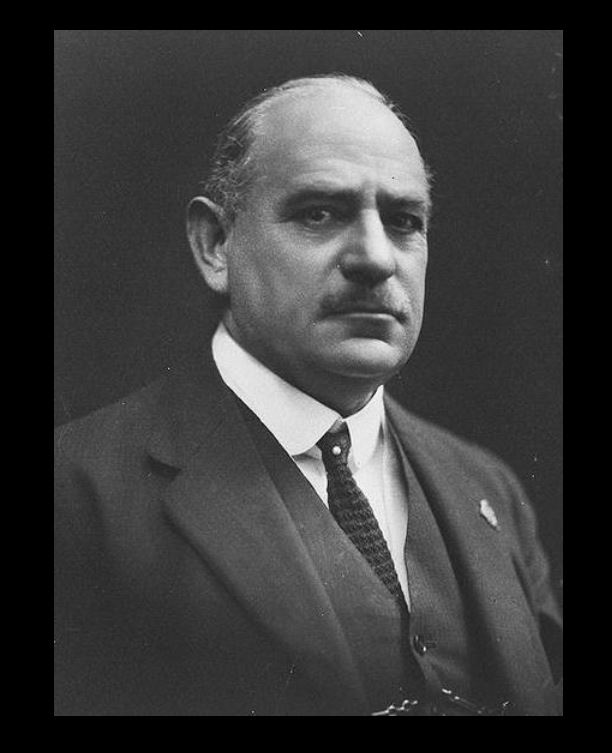Via Rob Stove, PhD., Australian author, editor extraordinaire and accomplished organist, come a few reflections, “stray remarks,” about Jews and Judaism in Australia. This little contextual analysis undermines the pat, crude, crass theorizing, regarding the immutable characteristics of the Global Jew, spewed by provincial ignoramuses like the American Andrew Uglin.
The vast majority of Australian Jews have been traditionally involved in small business. They’ve been quite often chefs, quite often café owners, very often chocolatiers, very often jewelers, watchmakers and pawnbrokers; sometimes accountants, sometimes owners of travel agencies, occasionally owners of bookstores and music stores ~Rob Stove
What they’ve almost never been, are devoted readers of magazines like Commentary. (The almost total lack of Jewish immigration from Tsarist Russia could account for this.) There’s no equivalent in Australia to the New York Jewish Intellectuals. Any Australian who maintained that John Howard supported the Iraq invasion because the Chief Rabbi of Australia told him to, would be regarded as a candidate for the nearest mental home ~Rob Stove
From what I can determine, Australian Judaism is as different from American Judaism as it’s possible for two Jewish groups to be who share the English language.
Whenever I happen to read (or read about) Philip Roth, Saul Bellow, and Norman Podhoretz, I realize that I really am confronted with a foreign country. I get the same feeling when I read Mordechai Richler describing Canada.
One factor separating Australian Jews from American Jews is that there are very few of the former. Of course Australia’s total population – 23 million or so – is itself tiny by American standards. Yet the Jewish proportion of Australia’s total population is a mere 0.4 percent (approximately 100,000 persons).
There were Jews in Australia from the start of white settlement in 1788 (several of the original convicts are known to have been Jewish). At least one synagogue existed in each of the biggest Australian cities from the 1840s onwards (some of these are still used), which suggests that even before the smallish influx of German-Jewish immigrants after the 1848 revolutions’ defeat, the Jewish community had grown to a size making such things viable.
But (and here’s the second big difference between the Australian and the American situation) Australia never had country clubs. Nor did it have the Ivy League. A numerus clausus (Jewish Quota) against Jews – whether it’s established by law, as with Admiral Horthy’s Hungary, or established by “gentlemen’s agreements”, as with Harvard – is scarcely going to be enforceable in a country like Australia, where (a) Jews hardly exist, (b) most of the few Jews who do exist have no discernible desire to enter universities or the professions in the first place.
I don’t wish to suggest that there was no Australian prejudice whatsoever against Jews. Individual Jews were probably given a hard time by individual Gentile malcontents.
But the number of Jews at the highest levels of Australia’s politics, judiciary, and military from the 1880s until now (Sir John Monash is the most famous instance of Jewish military success) implies overall Gentile apathy rather than overall Gentile hostility. A similar conclusion can be inferred from the fact that even though Australia was hit almost as hard by the Great Depression as any other country in the world, and it had the occasional demagogue (in particular Jack Lang, twice Premier of New South Wales), it never had a Father Coughlin.
The vast majority of Australian Jews have been traditionally involved in small business. They’ve been quite often chefs, quite often café owners, very often chocolatiers, very often jewelers, watchmakers and pawnbrokers; sometimes accountants, sometimes owners of travel agencies, occasionally owners of bookstores and music stores.
What they’ve almost never been, are devoted readers of magazines like Commentary. (The almost total lack of Jewish immigration from Tsarist Russia could account for this.) There’s no equivalent here to the New York Jewish Intellectuals. Any Australian who maintained that John Howard supported the Iraq invasion because the Chief Rabbi of Australia told him to, would be regarded as a candidate for the nearest mental home.
Nor are Australian Jews particularly prominent in the wider culture industry. As far as I can tell, our movie and theatrical milieux are very largely Gentile. Our communist parties did have occasional Jewish leaders – notably the Aarons dynasty – but the bulk of Australian commie activists were former Catholic altar-boys with Irish names!
These stray remarks demonstrate, I hope, that generalizing about the Australian Jewish experience from the example of the American Jewish experience would be a fool’s errand.
***********
Melbourne-based historian and organist R.J. Stove is the author of César Franck: His Life and Times and of a forthcoming book (When We Were Kings, scheduled for 2024) about Europe’s monarchist movements between the two world wars. Dr. Stove’s innumerable disastrous career decisions include a total refusal to regard Rod Dreher* as the greatest Christian theologian who ever lived.
*Image is of General Sir John Monash
Editor: *Barely A Blog has an archive dishing on Rod Dreary. Read the milder stuff before you broach Juvenal Early‘s “The Dissident Right Has An Idiocracy Problem.” You’ve been warned!



 print
print
My British father was a fan of British Jews. He praised his experience of them in business and in the wartime army.
He did, however, issue one qualifier. “I speak of British Jews. I have no experience of others.” This emphasised that his opinion was based on experience not wishful thinking.